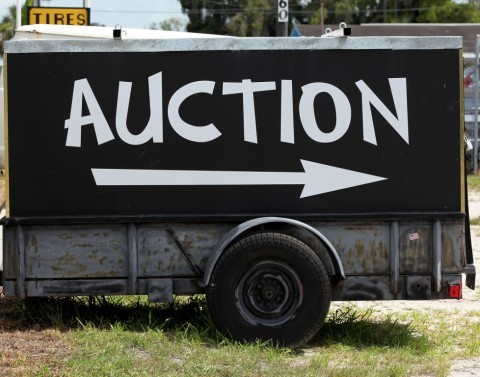
LAS VEGAS – Broadcasters, wireless companies and the government at odds over spectrum auction rules… Sound familiar?
In the first quarter of 2016, the Federal Communications Commission plans to auction off a swath of 600 MHz spectrum to wireless companies – the very same spectrum which TV stations now use to broadcast their traditional over-the-air signals. Alas, times have changed and the spectrum is needed for the consumer’s ever-burgeoning tastes for mobile data. So, the FCC here created an incentive auction, where the broadcasters could, essentially, get paid to give up their spectrum move their OTA station to another channel, if they want to.
Revenue expectations are very high, given that the AWS-3 auction here last year raised more than $40 billion. One U.S. broadcaster’s group believes the 600 MHz auction could reap more than $80 billion, most of which would go to the federal government, but a very good chunk could go to broadcasters – who would then use the money to upgrade their systems and relocate their channel or channels.
However, the FCC has also decided to set aside some of that 600 MHz spectrum for smaller players so that AT&T and Verizon can’t just buy it all up, if they so chose.
That has the big two down here mighty upset. As well, many broadcasters don’t care for it either because they believe spectrum set aside for smaller wireless companies will place a limit on how much they can earn from the spectrum auction – and so some broadcasters may opt out of participating in it.
FCC commissioner Michael O’Rielly spoke to the National Association of Broadcasters Monday at a session entitled “FCC's Incentive Auction: Makes Solving a Rubik's Cube Seem Easy” to address the upcoming auction and the challenges all sides face. As with all things Washington, this issue apparently breaks down along Republican and Democrat lines and O’Rielly is one of two Republicans on the five-commissioner FCC. He urged his Commission to make changes to the auction rules, warning it not to be like Canada.
“We must remain focused on the goal: to conduct and complete a successful auction, not win a Nobel Prize for most intricate auction design,” commissioner O’Rielly said in his speech.
The to-do list that still waits before the 2016 auction is daunting. Besides any potential legal challenges which may pop up, the FCC has to consider myriad technical issues and hope that both broadcasters and wireless companies come to the table, “and the egg will be on the Commission’s face if we fail to get this right,” he added.
“We only have to look to the recent Canadian AWS-3 auction where the reserved spectrum winners paid 4.68% of the total auction receipts, less than what was paid for unreserved spectrum by a factor of 20.” – Michael O’Rielly, FCC
“I have deep concerns about certain policy decisions being made that could depress participation and/or revenues… I also worry that the impediments placed on wireless providers will prevent a free and open bidding process, thereby lowering revenues from the forward auction portion.”
He also noted that the U.S. AWS-3 auction might not be the best benchmark for broadcasters when considering the potential windfall in the 600 auction. “In the AWS-3 scenario, wireless providers knew the exact licenses being purchased and the applicable rules. However, the incentive auction rules are still unsettled.”
There is also a clear device ecosystem in the AWS-3 band and it was clear of any interference. That’s not the case with the 600 band. Devices aren’t ready and if broadcasters don’t give up their spectrum, wireless companies may have to make room to keep the TV channels.
While the more participants, the better – for spectrum efficiency and dollars brought in during the auction, commissioner O’Reilly noted however, “the Commission has diverged from the sound principles of maximizing participation to serve other goals. In particular, the Commission seems intent on setting aside some spectrum – in other words, reserving licenses – for select companies. The practical effect of this policy is obvious: these licenses will go for far less, because the country’s largest providers will only be able to win the unreserved spectrum. To see an example of this policy in action, we only have to look to the recent Canadian AWS-3 auction where the reserved spectrum winners paid 4.68% of the total auction receipts, less than what was paid for unreserved spectrum by a factor of 20.
“Additionally, if most of the auction revenues will come from the unreserved spectrum, then the Commission needs to ensure that those licenses are sufficiently attractive and unencumbered. Instead, the Commission’s latest proposal is to keep the most desirable licenses for the reserved category, while offering our nation’s largest wireless companies licenses that are impaired, which means they suffer from interference problems. For broadcasters seeking to maximize the value of their licenses, which affects not only those that participate but future valuations of remaining stations, such a policy would seem to be troubling and well worth your effort to see changed.”
It will be well worth watching just what happens down here as the American 600 MHz auction approaches and Industry Canada sifts through submissions from Canadians and sets the rules for our own auction of that spectrum.



